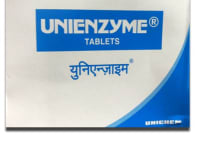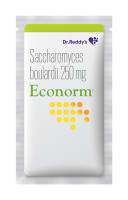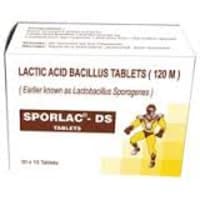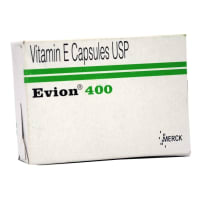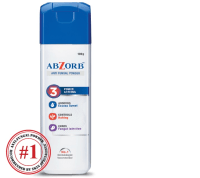USED FOR:
Serious bacterial infections
COMPOSITION:
Vancomycin (1gm)
Therapeutic Uses:
anti infectives

Interaction with alcohol is unknown. Please consult your doctor.

WEIGH RISKS VS BENEFITS
Vancogen 1gm Injection may be unsafe to use during pregnancy.Animal studies have shown adverse effects on the foetus, however, there are limited human studies. The benefits from use in pregnant women may be acceptable despite the risk. Please consult your doctor.

Vancogen 1gm Injection is probably safe to use during lactation. Limited human data suggests that the drug does not represent a significant risk to the baby.

SAFE
Vancogen 1gm Injection does not usually affect your ability to drive.

CAUTION
Vancogen 1gm Injection should be used with caution in patients with kidney disease. Dose adjustment of Vancogen 1gm Injection may be needed. Please consult your doctor.Regular monitoring of kidney function test and some blood tests is advised while you are taking this medicine.

There is limited information available on the use of Vancogen 1gm Injection in patients with liver disease. Please consult your doctor.
Uses of Cyproheptadine
Cyproheptadine is used in the treatment of appetite stimulant and allergic disorders.
Uses of Vancogen Injection
Vancogen 1gm Injection is used in the treatment of serious bacterial infections.
How to use Cyproheptadine
Take this medicine in the dose and duration as advised by your doctor. Check the label for directions before use. Measure it with a measuring cup and take it by mouth. Shake well before use. Apetone Syrup may be taken with or without food, but it is better to take it at a fixed time.
How to use Vancogen Injection
Your doctor or nurse will give you this medicine. Kindly do not self administer.
How Apetone Syrup works
Cyproheptadine is an antihistaminic medication. It blocks the action of certain chemical messengers that are responsible for inflammation, congestion, itching, and other allergic reactions.
How Vancogen Injection works
Vancogen 1gm Injection is an antibiotic. It kills the bacteria by attacking their cell wall. Specifically, it prevents the synthesis of a substance in the cell wall called peptidoglycan, which provides the cell wall with the strength required for survival of bacteria in human body.
Common Sleepiness.
Common Nausea, Abdominal pain, Decreased potassium level in blood.
Expert advice for Cyproheptadine
Avoid driving or operating dangerous machinery as it may decrease alertness. Avoid consuming alcohol when taking the Cyproheptadine, as it may cause excessive sleepiness or drowsiness.
Expert advice for Vancogen Injection
It is given as an oral form or as a drip (intravenous infusion) into a vein or into a muscle.
Do not drive because you may feel sleepy or dizzy while being treated with vancomycin.
During treatment patient may undergo blood, urine, or hearing tests to look for signs of side effects.
Do not start or continue the vancomycin if you have a kidney problem or hearing difficulties.
Avoid using vancomycin if you are pregnant or planning to become pregnant, or breastfeeding.
Q. Is cyproheptadine used to gain weight/for headaches?
No, cyproheptadine is used for treatment of allergies. Patient should follow the advice of doctor regarding its use
Q. Is cyproheptadine a narcotic/antihistamine/anticholinergic/steroid?
Cyproheptadine is antihistaminic drug which may have anticholinergic effects. It is not a narcotic/steroid
Q. Is cyproheptadine over the counter?
No, it is available with doctor's prescription only
Q. Is cyproheptadine safe?
It is safe if used at prescribed dose and duration as advised by your doctor
Q. Can I take cyproheptadine with Benadryl/Tylenol/ibuprofen?
Yes, but Benadryl contains some amount of antihistaminic drug which may alter the effects of cyproheptadine. Always consult your doctor for the change of dose regimen or an alternative drug of choice that may strictly be required
Q. Does cyproheptadine get you high/make you gain weight/increase appetite/make you hungry?
Cyproheptadine causing these side effects is rare or uncommon. However, always consult your doctor if you experience such side effects
Q. Does cyproheptadine affect birth control?
No, it does not affect birth control. Patient should follow the advice of doctor before its use
Q. Does cyproheptadine have codeine/acetaminophen in it?
No, it does not contain codeine/acetaminophen in it.
Q. Is vancomycin a form of beta lactam, penicillin, cephalosporin, macrolide, or sulfa drug?
Vancomycin does not contain sulfa and is not a beta lactam, penicillin, cephalosporin, or macrolide drug
Q. Is it bactericidal or bacteristatic?
It is a broad spectrum bactericidal glycopeptide antibiotic
Q. Does Vancogen come in pill form?
Yes, Vancogen comes in pill form and used for the treatment of inflammation of the digestive tract (enterocolitis) caused by staphylococci and severe diarrhea (pseudomembranous colitis)
Q. Does Vancogen cause diarrhea?
No, Vancogen is not known to cause diarrhea. Please consult your doctor before taking the drug
Q. Can I take vancomycin with probiotics, ibuprofen, heparin, Zosyn, Tylenol, Tums, or Aleve?
Vancomycin is not reported to interact with ibuprofen, heparin, Zosyn (piperacillin and tazobactam), Tylenol (acetaminophen), Tums (sucrose and calcium carbonate), or Aleve (naproxen). It may reduce efficacy of probiotics. Please follow the advice of the doctor regarding their simultaneous use
Q. Can I take vancomycin with penicillin allergy?
Yes, vancomycin may be given to the patients who are allergic to penicillin
Q. What organisms does Vancogen cover?
Vancogen is mainly effective against gram-negative bacteria such as pseudomonas as well as some gram-positive bacteria such as streptococcus. It is a drug of choice for infections due to Clostridium difficile and methicillin-resistant Staphylococcus aureus (mrsa).


 Vancogen 1gm Injection
Vancogen 1gm Injection  Bookmark
Bookmark



